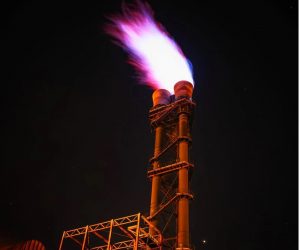Germany is preparing to pump even more financial aid into struggling energy firm Uniper, the nation’s biggest supplier of natural gas, as it approaches insolvency as energy prices skyrocket, according to a new report in Bloomberg.
Bloomberg reported that the German government is poised to increased the aid it is supplying the company up to €60 billion ($60 billion). The company is being drained financially, as the price of natural gas skyrockets due to reduced supplies flowing from Russia.
Uniper has suffered an adjusted net loss of €3.2 billion ($3.2 billion) over the first nine months of this year. Experts are expecting that to become even worse, as the winter heating season closes in, demand grows, prices rise, and delivery issues may cause outright shortages in some areas. Estimates now say the government may end up spending twice the initial estimates to bail out the energy giant.
Last month the German government unveiled a plan to nationalize Uniper in an effort to prevent a collapse of the energy supplier as the energy crisis swept across Europe. In a €200 billion energy aid package introduced by Berlin, Uniper was promised €31 billion of the fund as aid to help it through the crisis. The government would receive a 98.5% stake in the company in return, effectively nationalizing it. The German Senate is expected to confirm the deal shortly, which would release the funds to the company within a week.
German Deputy Finance Minister Florian Toncar said in an interview that Berlin was committed to doing whatever was necessary to keep Uniper operational, however he did not discuss the size of any aid package. He said, “Uniper is a crucial company for the gas supply in Germany, otherwise we wouldn’t jump to such high stakes.”
Even as European benchmark natural gas futures have declined 70% from the peak prices seen in August as countries have finished topping off their reserves and Liquid Natural Gas deliveries have picked up, gas prices remain roughly three times their five year average for this period. Uniper has noted its biggest problem is that it is paying much higher prices now than it did when it was receiving cheap Russian pipeline gas.

